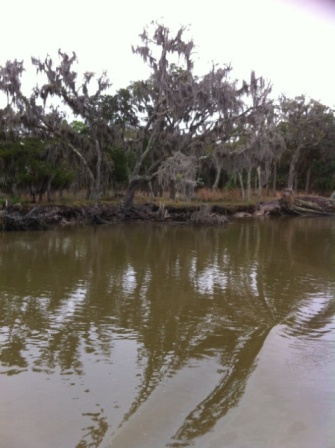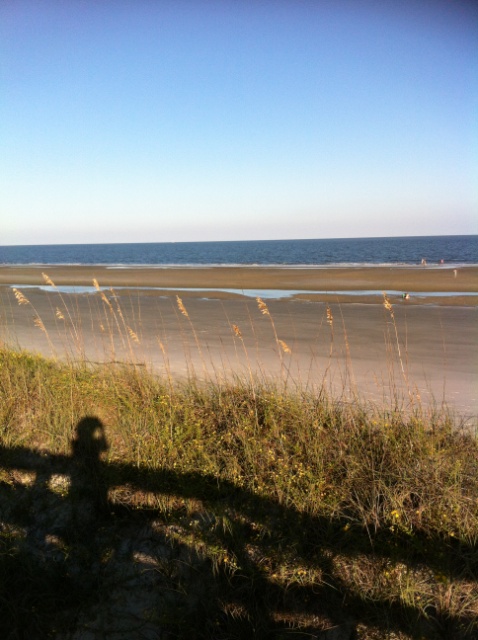The Grapevine Art & Soul Salon
Presentations: Anne Lovett

Golden Islands
I love islands. I’ve always loved islands. I’ve loved islands since the time of my earliest memories, memories of sand and pine trees, the sun sparkling on water. Hazy and romantic the memories come to me now, with an aura that blots out any barnacles and fades any thought of stinging jellyfish.
Georgia's St. Simon’s Island and the nearby isles meant ancient tabby ruins, massive old cannons, venerable wooden churches. The beaches meant rattling sea oats, pails and shovels, tall drip castles built of fine gray sand. The Golden Isles meant the smell of marsh and Spanish moss and going crabbing with my mother and a square wire cage. For a long while I knew the color of the ocean only as gray-green, and foam as the color of ancient seashells. Rare on the Georgia island shores, sand dollars were more treasured than real dollars, for to take one home they had to be sufficiently perfect and completely dead.
The islands in those days were perfectly imperfect, a place to get sand in my shoes, for my hair to blow free, for my face to sport a smattering of freckles: a casual place, where shelves held driftwood and sand dollars and maybe a model ship I helped my brother build. Some places like that still exist, to be sure, but they are becoming harder to find, even as the old beach houses come down and marshes are filled to build McMansions.
In my teen years, a friend’s father, a family doctor with roots in South Carolina, built a small, unpretentious beach house on Hilton Head Island, which in those days consisted mostly of sand roads, scrub, and palmetto. He liked being off the grid, out of reach, finally able to relax and do some fishing. When I visited Mary Louise, we girls blew in and out like the fine white sand as the spirit moved us. We slept in bunk beds and ate hamburgers and fish freshly caught. We flirted with “telephone boys” out stringing phone lines to the island. We went to the marina to collect mail and buy groceries and look for boys with boats. And one evening, we went with my friend’s parents to a meeting called by an island developer, at his house. All I remember about that meeting was seeing a naughty book on the developer’s shelf, all about the pursuit of pleasure for oneself.
That might have been a forecast of things to come.
Island life is lazy. Island life is simple. Island life is away from it all. There’s really not much to do for the city person accustomed to the go-go lifestyle, so there must be pleasure to pursue. Resorts, spas, activities, tours, golf, tennis, card games, fancy restaurants, bars, shopping. Motorized water sports. Me, I’d rather have jellyfish and horseflies rather than traffic and overcrowding that is the downside of this pursuit.
I wrote the novel Saving Miss Lillian about one woman’s intention to save her own island from this fate. And we are all owners of our own little islands, whether they are actual plots of land in the middle of a great sea or private thoughts scribbled in a journal. We are keepers of this island, and we owe it to ourselves to keep pleasure of the manufactured kind from crowding out the pleasure that comes from contemplation of nature, tranquility, and achievement of personal goals.
Islands. They’re in my blood. Proof came when my husband and I went on a trip to the coast with the Georgia Trust for Historic Preservation, which works for restoration and care of historic houses and sites. Touring one of the homes on St. Simon’s, I listened to our guide, who mentioned she was from Scotland. I remarked that my forays into genealogy had turned up Scottish ancestors. She asked where they were from. “Kintyre,” I said. “Ah,” she said, smiling. “Island people.”

See Anne Lovett's writer page (in Contributing Writers panel to left) for information about her two published novels. The latest, Saving Miss Lillian, is a mystery-romance set on a fictitious island off the coast of Georgia.
Copyright 2017, Barbara Knott. All Rights Reserved.